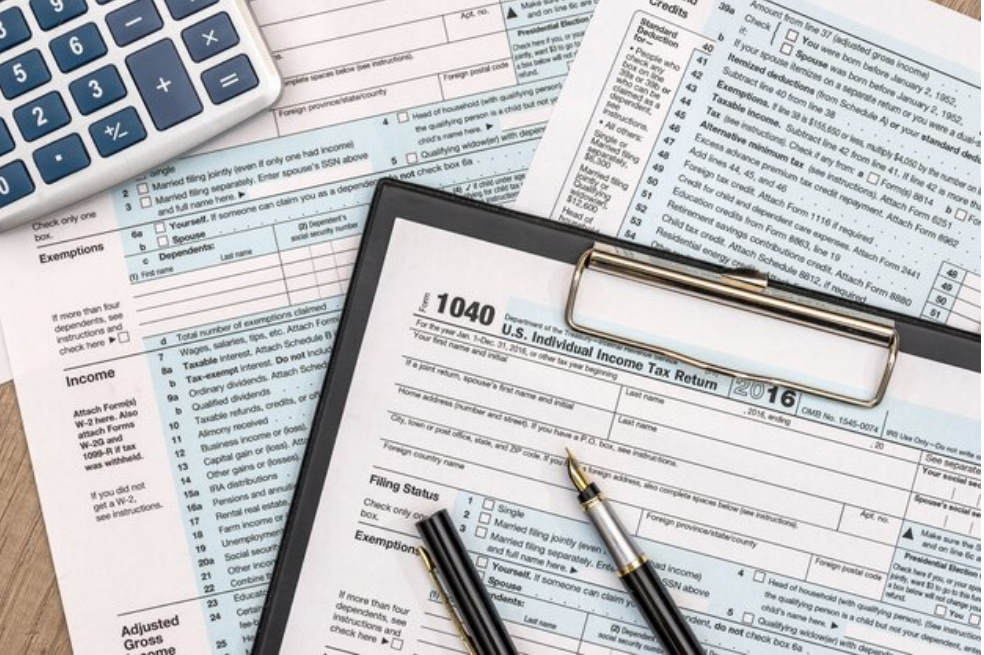It is important to note if you are classified as an independent contractor or an employee.
According to the IRS, self-employment is when you’re being paid for the job, rather than your time. You are responsible for your own tools, supplies, and how you do the job. You are still considered self-employed, even if you only do it part-time or in addition to other jobs you might have.
A major difference between an employee and those who are self-employed is how you pay taxes. You can pay taxes in two ways: through withholdings or paying estimated taxes throughout the year.
Self-Employment Taxes
If you’re a self-employed taxpayer and you expect to owe taxes on your income, you should make quarterly estimated payments. To figure your estimated tax, you must figure your expected adjusted gross income, including your net profit from your self-employment income, taxable income, deductions, income and self-employment taxes, and credits for the year.
There are four due dates for the quarterly estimated payments. If you don’t pay enough tax by the quarterly deadline, you may be charged a penalty, even if you receive a tax refund.
Tax Deductions
Self-employed individuals are eligible for a range of unique and advantageous tax benefits outlined in the tax code. It is advisable to consult with a professional tax advisor to explore various tax deductions, including the following:
Mileage Deduction: Claiming deductions for the miles driven during work-related activities is a straightforward and beneficial option. To avail this deduction, it is essential to maintain a record of the miles driven while working, as well as the total mileage accumulated by the vehicle by December 31 each year. Essentially, you can deduct expenses for the miles driven. There are two methods to calculate this deduction:
Standard Mileage Rate: This method allows you to deduct a predetermined rate per mile driven, which is set at 65.5 cents per mile for the year 2023 (increased from 62.5 cents per mile).
Actual Expense Method: Under this method, you can deduct the business-related portion of the expenses incurred to operate and maintain your vehicle throughout the year. This includes expenses such as fuel, oil, repairs, general maintenance, registration fees, interest payments, and vehicle depreciation.
Regardless of the method chosen, it is crucial to report both the total miles driven for ride-sharing purposes and work-related activities, as well as the total expenses incurred throughout the year.
Cell Phone: The use of your cell phone is essential and can be claimed as an expense. This includes the cost of the phone, monthly carrier fees, and necessary accessories such as chargers and car mounts. It is important to note that if the same phone is used for personal use, only a portion of the expenses can be deducted for self-employment.
Car Safety Plans: Expenses related to car safety, such as first aid kits, roadside assistance plans, and tire inflators, can also be deducted.
Tolls: Any tolls incurred while driving on highways, tunnels, or bridges can also be claimed as deductions.
The Qualified Business Income deduction (QBI) is a significant deduction that allows self-employed taxpayers to deduct up to 20 percent of their qualified business income before income taxes are determined.
Finally, 50 percent of the Self Employment Tax paid can also be deducted. It is important to keep accurate records of all expenses to ensure proper deductions are claimed.
Cash Payment
Cash and other income paid to you by check, cash, or even in exchange for other work or items is not reported on either Form 1099-K or 1099-NEC, but you must still report it on your tax return.
If you don’t report this income, or don’t even file your tax return in general, it can lead to major headaches, penalties, and fines.
During tax season, it is crucial to understand that you will receive a 1099 form from these companies instead of a W-2. The following are examples of forms you may receive:
1099-K Companies are required to issue a 1099-K to drivers for payments exceeding $600.
1099-NEC Clients who paid you $600 or more for your services will provide you with this form.
It is important to note that forms 1099-K and 1099-NEC may not encompass all of your self-employment income. Regardless, it is mandatory to report all earnings, including those as low as $1 and even cash payments made under the table.

